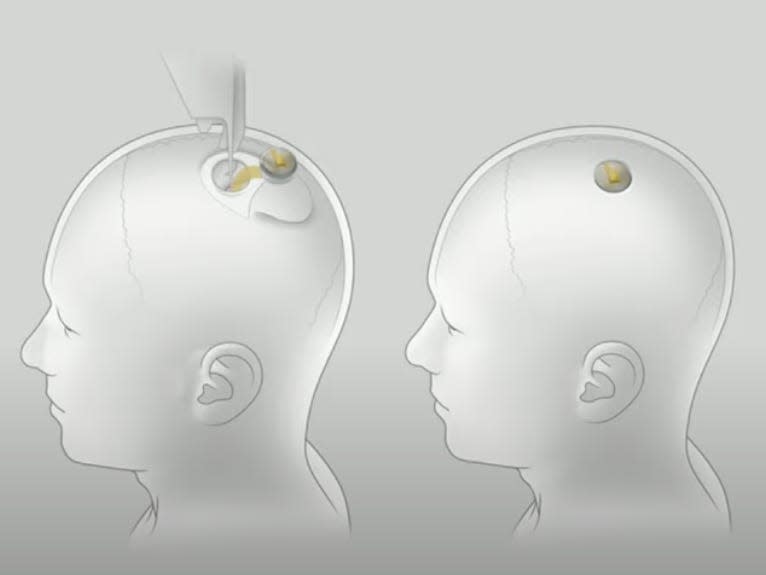First Neuralink patient explains what could happen if his brain-chip implant gets hacked

- Oops!Something went wrong.Please try again later.
- Oops!Something went wrong.Please try again later.
Neuralink's first human patient discussed hacking concerns on Joe Rogan's podcast.
Noland Arbaugh said a hacker could, in theory, see his brain data or access his PC by controlling a cursor.
However, Arbaugh said he isn't too worried about getting hacked.
Neuralink's brain chip has already shown promising results for its first recipient Noland Arbaugh, since he received it in January.
But is it possible the chip could be hacked?
"The short answer is yes," Arbaugh said in a podcast interview with Joe Rogan released Thursday.
While Rogan lightheartedly discussed the possibility of humans being hijacked and becoming cyborgs, Arbaugh said hacking his brain implant wouldn't do much — at least at this point.
"You might be able to see like some of the brain signals," Arbaugh said. "You might be able to see some of the data that Neuralink's collecting."
It's unclear what this kind of data would look like. The Neuralink chip, which is about the size of a coin, contains thousands of electrodes that monitor and stimulate brain activity. The information is then digitally transmitted to researchers.
Arbaugh, a 29-year-old quadriplegic, previously told Business Insider that the brain chip has given him more independence and helped him reconnect socially.
The chip allows him to control a cursor on his computer using only his brain.
"I've been using it to message people on X, use Instagram, reply to emails, play fantasy sports, read comics online, and access a site I use to learn Japanese," he said. "I also used it to book a hotel for when I visited Neuralink's headquarters."

Arbaugh told Rogan that if he was connected to his computer at the time of the hacking, someone could steer and control his mouse cursor. They could also potentially access his messages and emails by getting into his computer, Arbaugh said.
The possibility of hacking isn't a taboo subject for Arbaugh, though. He said he was warned about the risk before he started the study, but he's not worried about it.
"It is what it is," Arbaugh said. "I think if it happens, it happens."
The current focus on Neuralink is for medical uses.
Neuralink founder Elon Musk has predicted the chip will one day be able to "solve" mental conditions like autism and schizophrenia. That's been contested by some neuroscientists who don't think the chip will be able to change the developmental structure of the brain impacted by certain conditions. But the technology may be able to help paralyzed patients like Arbaugh experience improved movement.
Eventually, though, Musk hopes to make Neuralink chips mainstream and turn them into a "Fitbit in your skull." If that becomes a reality, hacking concerns might be more pressing.
Check out the full interview below.
Read the original article on Business Insider

